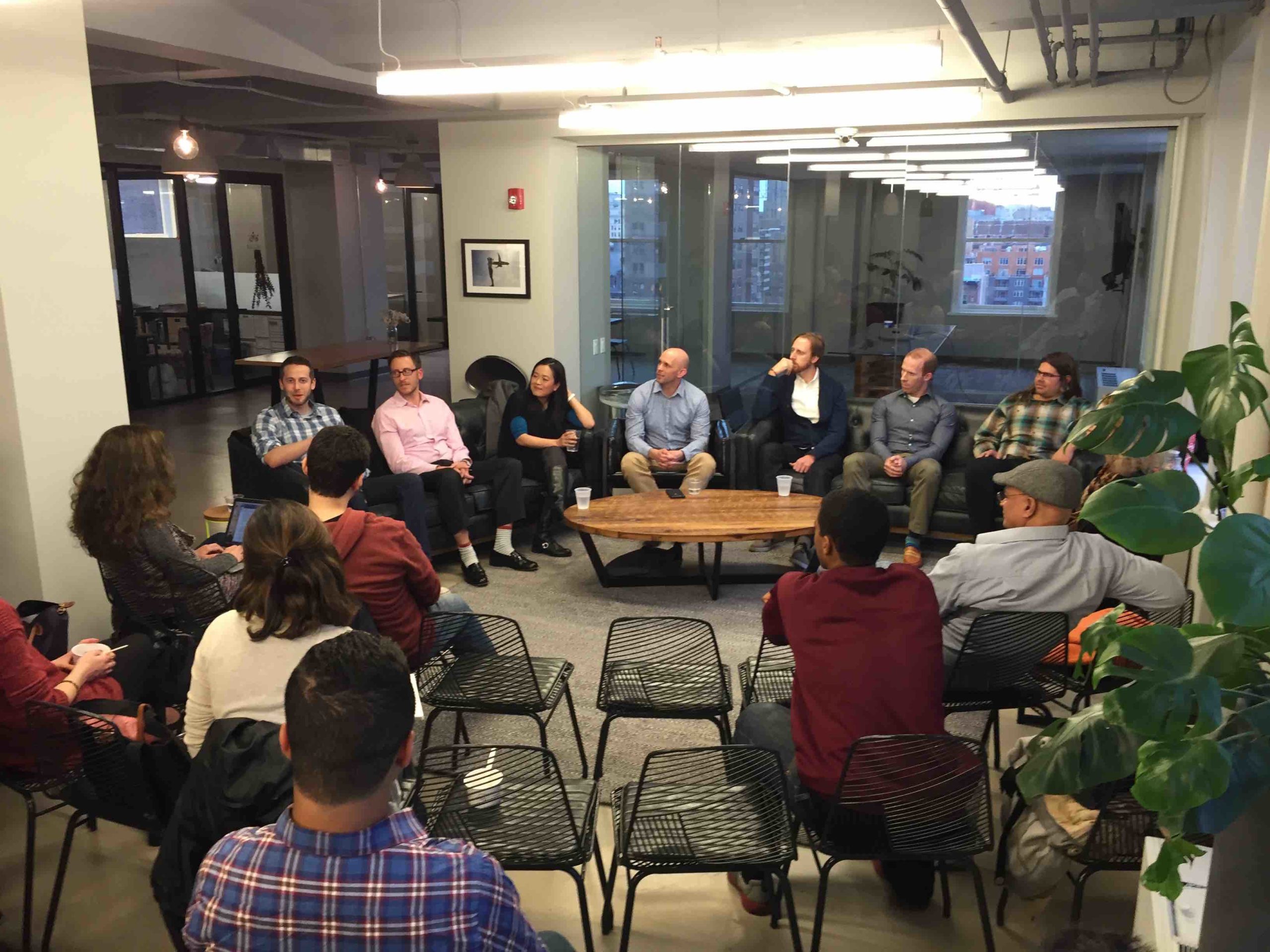The first time Due Quach was exposed to meditation, she left.
“I wanted to be efficient and productive with my time,” she said. “What are you getting with this?”
Quach, now the CEO of mindfulness company Calm Clarity, drew a laugh at the “Mindful Startups and Professionals” event during Philly Tech Week 2016 presented by Comcast.
During the event, organized by N3rd Street and recruiters CandiDate Philly and held South Broad Street coworking space Industrious, each panelist spoke about the importance of mindfulness and meditation in business. It’s a hot topic in the tech scene now: entrepreneurs use meditation apps and local tech folks organize mindfulness events, like N3rd Street Unplugged. There’s even a coworking space out of a yoga studio in Washington, D.C.
For starters, Quach defined mindfulness: “It’s paying attention to each moment. It’s focused open attention to perception of thought and feelings and not judging them.”
“For instance, was everyone listening to what Due said or were you thinking about other things?” asked Jim Lockwood, cofounder of the Lockwood Group. He wanted to make the point that someone being mindful would have heard Quach’s every word instead of being distracted by extraneous factors.
Benjamin Bock, formerly of West Chester’s Walnut St. Labs and now an evangelist for FaceCrunch.com, added, “The misconception of the word ‘mindful’ is sometimes taken out of context. It’s used as a synonym for consciousness. Mindful is actually a means to expand consciousness.”
Here’s why the panelists practice mindfulness in their work lives.
Anxiety
- Jake Stein, founder and CTO of RJMetrics, said mindfulness helped him with anxiety during public speaking. When being mindful, Stein said, “I can step back and look at it as ‘there’s that thing’ — that anxiety. I’m aware that the feeling is happening. It makes me less freaked out about the things that freak me out.”
Stress
- Grant Hartman, account manager for software development company Chariot Solutions, said it helps him make better decisions. “In stressful situations, emotions take over,” he said. Through mindfulness, Hartman said he could “choose non-reaction which leads to better decisions that lead to a more enjoyable life.”
Creativity
- “I’m a lot nicer, more tolerant,” said Quach, who’s working on a book about mindfulness. “I become more creative. When you tune into what feels natural, the stars keep aligning and doors open and you follow your bliss.”
Compassion
- “When you are genuinely present, the only thing that makes sense is to be compassionate,” said developer and meditation facilitator Matt Zumwalt, who recently moved to Philly from San Francisco. “The biggest part of a professional life is the compassion piece.”
Better listening skills
- “It’s easy to get disconnected,” Stein said, referring to any day at the office. “As I am mindful and meditate, I’m more compassionate and aware and a better listener for my team.”
Happiness
- Hartman explained that in sales, his occupation, there are peaks and valleys. “You’re constantly being rejected and you have to be OK with that,” he said. “Through mindfulness, it’s easier to remember that the valleys are only temporary.”
Emotional intelligence
- Another reason for mindfulness and meditation is that they reinforce emotional intelligence, Hartman said, which he claims, “is the most important asset a person can develop” in business.
A stronger sense of self
- When you’re mindful, “you tune into yourself and don’t judge people on minor things,” Quach said. “You become less impulsive and […] are the person you want to be, not the person defined by how other people treat you.”







